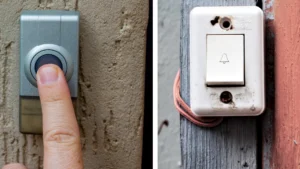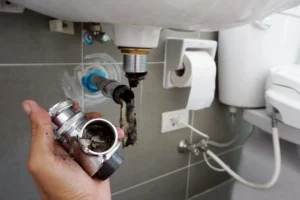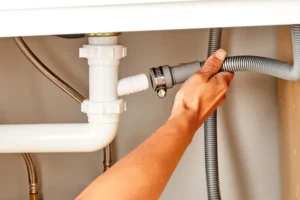Electrical issues don’t always follow a schedule. Some problems—like a flickering light or faulty outlet—can wait until morning. Others, like a smoking fuse box or a power outage in the middle of the night, require urgent help. So how do you know when to call a standard electrician, and when you actually need an emergency electrician?
This guide will help you understand the key differences, when to make the call, and how to choose the right professional for the situation—whether it’s during business hours or at 2 a.m.
What Is a Regular Electrician?
A regular electrician handles everyday electrical jobs during standard working hours, typically from 8:00 AM to 5:00 PM on weekdays.
Common services include:
- Installing new outlets or light fixtures
- Replacing circuit breakers
- Upgrading switchboards
- Setting up power points
- Conducting routine inspections and maintenance
Most household projects can be safely scheduled in advance with a standard electrician. These jobs typically don’t pose immediate safety risks, and pricing is often more affordable during normal business hours.
What Is an Emergency Electrician?
An emergency electrician is a licensed professional available after hours, during weekends, or on public holidays—24/7—when urgent electrical issues arise. These electricians are trained to respond to situations that carry higher risk or require immediate attention to prevent damage or danger.
Situations that require an emergency electrical service include:
- Power outages affecting only your property
- Electrical burning smells or signs of smoke
- Exposed live wires
- Water damage around electrical fixtures
- Sudden circuit failures causing essential systems to shut down
If you’re unsure whether something is an emergency, it’s better to err on the side of caution—especially when safety or property damage is a concern.
Key Differences Between a Regular and Emergency Electrician
Here’s a breakdown to help you determine which service you need:
| Criteria | Regular Electrician | Emergency Electrician |
|---|---|---|
| Availability | Weekdays, business hours | 24/7 including nights and weekends |
| Booking | Scheduled in advance | Available on-call, urgent dispatch |
| Cost | Standard hourly rate | Higher due to after-hours call-out fees |
| Types of Work | Routine upgrades, maintenance | Immediate repair, hazard mitigation |
| Response Time | Based on availability | Rapid, typically within 1–2 hours |
Calling a 24 hour electrician makes sense when there’s potential for electrical fires, safety risks, or significant disruption to your home or business.
When to Call an Emergency Electrician
You should call an after hours electrician or 24/7 electrician in the following scenarios:
1. Electrical Burning Smell or Sparks
If you detect burning plastic or see sparks near outlets or wires, turn off the main switch and call an emergency professional immediately. These are signs of dangerous overheating.
2. Complete Power Loss (Not a Grid Outage)
If your neighbours have power but your home doesn’t, the fault lies within your property. A 24hr electrician near me search may be needed to get help fast.
3. Water Exposure Around Electrical Fixtures
Water and electricity don’t mix. Flooding, roof leaks, or burst pipes near power points are all reasons to call a 24 hour electrician emergency line.
4. Repeated Circuit Breaker Trips
While occasional tripping can be normal, frequent resets point to serious faults that could escalate without warning.
5. Buzzing Sounds or Shock From Switches
Feeling a zap when touching a switch or hearing strange buzzing is a red flag. These could be signs of short circuits or grounding issues.
In all these cases, a trained emergency electrician 24 hours professional will be able to quickly identify and fix the issue before it becomes dangerous.
What a Regular Electrician Will Do
Not all electrical issues require immediate attention. Some can wait for a scheduled visit from a qualified regular electrician, saving you money and stress.
Examples include:
- Installing a ceiling fan or lighting
- Upgrading outlets to USB-compatible points
- Renovation work like rewiring a kitchen or bathroom
- Installing smart home systems
- Routine switchboard inspections
If the issue is not affecting your safety or essential systems, it’s perfectly fine to book during regular hours.
How to Find the Right Electrician (Emergency or Not)
Whether you’re searching for a regular or emergency electrician, look for these key qualities:
Licensing and Accreditation
Always verify that the electrician is licensed in your state or territory. A qualified technician will have insurance, training, and certifications.
Clear Response Times
A proper electrician emergency service should tell you upfront how quickly they can arrive. Look for companies that offer guaranteed arrival times or live tracking.
Transparent Pricing
Emergency jobs will cost more, but you should still receive a clear breakdown of rates, including call-out fees, hourly charges, and after-hours surcharges.
Good Reviews and Local Presence
Check Google, local directories, or service platforms for genuine customer feedback. Local electricians tend to respond faster and offer more reliable service.
Availability of 24/7 Support
If your area is prone to storms or frequent outages, it’s a good idea to have a 24hr electrician on speed dial—just in case.
Cost Differences: Regular vs Emergency Services
Cost is one of the biggest differences between a daytime service and a late-night emergency callout.
Regular Electrician:
- Standard call-out fee: $80 – $150
- Hourly rate: $80 – $130
- Scheduled with flexibility
Emergency Electrician:
- After-hours call-out: $150 – $300
- Hourly rate: $150 – $250
- Immediate response, often within an hour
Remember, while emergency rates are higher, the service can prevent expensive property damage—or even save lives in some cases.
Do You Really Need a 24 Hour Electrician? Ask Yourself This:
- Is there visible damage, fire risk, or exposed wiring?
- Is the issue impacting safety or critical appliances (e.g., refrigerator, medical devices)?
- Could delaying repairs make the situation worse?
If the answer is yes to any of the above, don’t wait. A 24 7 electrician is exactly what you need.
Tips to Avoid Electrical Emergencies
Preventative maintenance can reduce your chances of needing emergency help.
- Schedule yearly switchboard inspections
- Upgrade old wiring or faulty outlets
- Don’t overload power boards or circuits
- Install surge protectors on key appliances
- Fix minor issues before they become major problems
Being proactive with your system means fewer breakdowns, better performance, and lower risk overall.
Conclusion
Knowing the difference between a regular electrician and an emergency electrician can save you time, money, and stress—especially when something goes wrong at an inconvenient hour.
If your issue isn’t urgent, book a licensed professional during regular hours. But if there’s a risk to your safety, your property, or your power supply, don’t hesitate to call a 24 hour electrician. They’re trained, equipped, and ready to help—no matter what time it is.
Choosing the right service is about knowing when to wait and when to act. Now you’re ready to make that call with confidence.










